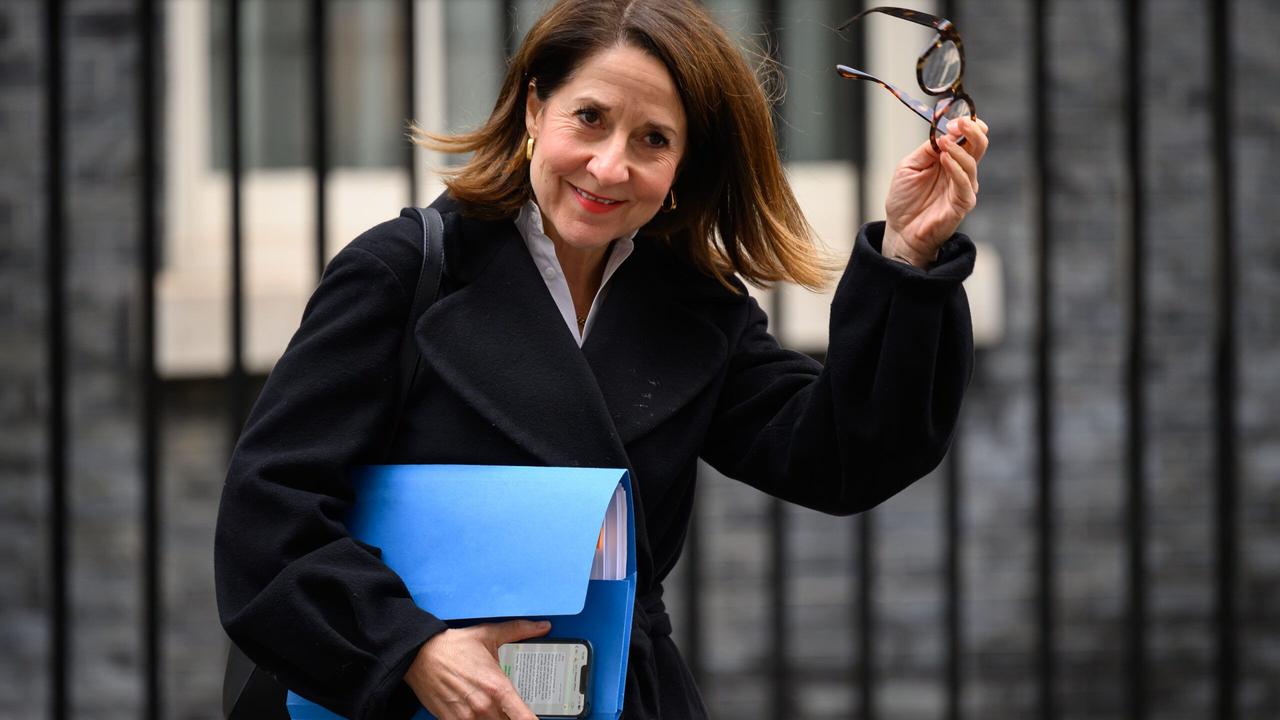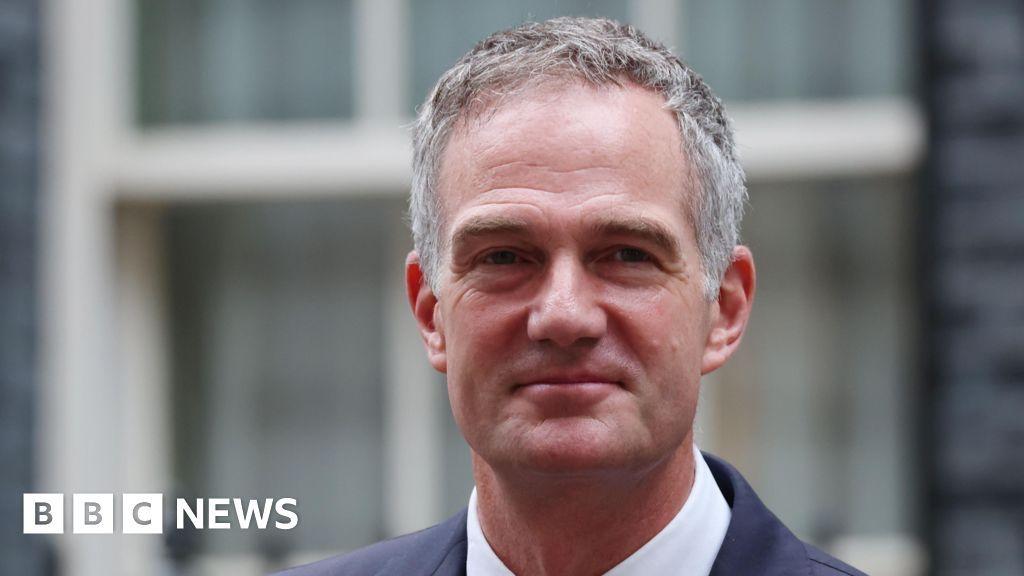UK Aims to Become 'Defence Industrial Superpower' with £2.2 Billion Investment in AI and Drones
2 Sources
2 Sources
[1]
UK to become 'defence industrial superpower', finance minister says
LONDON, March 26 (Reuters) - Britain's finance minister Rachel Reeves said she wanted the country to become a "defence industrial superpower" as she pumped an extra 2.2 billion pounds ($2.8 billion) into the sector in her budget update on Wednesday. Reflecting heightened geopolitical tension and U.S. President Donald Trump's calls for Europe to do more to protect its own security, Reeves said she would focus on new technology and innovation to drive the country's defence industry. Under new plans, 10% of the government's defence equipment budget would be spent on new technologies, she said, with a focus on drones and AI, while small companies would be given better access to defence contracts in a reform of what she called a "broken" procurement system. The government is also setting aside 400 million pounds to be spent on UK defence innovation to bring new technology to the frontline more quickly, she said. Reeves referenced defence throughout her speech, calling the extra cash for the sector vital in a "a more insecure world", and adding that the investment would help the wider economy. "This additional investment is not just about increasing our national security but increasing our economic security, too. As defence spending rises, I want the whole country to feel the benefits," she said. Prime Minister Keir Starmer last month committed to lift defence spending to 2.5% of GDP by 2027, the biggest increase in the budget since the end of the Cold War, and said Britain will aim to spend 3% of its GDP on defence in the next parliament. ($1 = 0.7759 pounds) Reporting by Sarah Young, Editing by Paul Sandle Our Standards: The Thomson Reuters Trust Principles., opens new tab Suggested Topics:United Kingdom
[2]
UK to become 'defence industrial superpower', finance minister says
Britain's finance minister Rachel Reeves announced an extra £2.2 billion for the defence sector in her budget update, aiming to make the UK a 'defence industrial superpower.' This investment will focus on new technologies such as drones and AI, while improving small companies' access to contracts.Britain's finance minister Rachel Reeves said she wanted the country to become a "defence industrial superpower" as she pumped an extra 2.2 billion pounds ($2.8 billion) into the sector in her budget update on Wednesday. Reflecting heightened geopolitical tension and U.S. President Donald Trump's calls for Europe to do more to protect its own security, Reeves said she would focus on new technology and innovation to drive the country's defence industry. Under new plans, 10% of the government's defence equipment budget would be spent on new technologies, she said, with a focus on drones and AI, while small companies would be given better access to defence contracts in a reform of what she called a "broken" procurement system. The government is also setting aside 400 million pounds to be spent on UK defence innovation to bring new technology to the frontline more quickly, she said. Reeves referenced defence throughout her speech, calling the extra cash for the sector vital in a "a more insecure world", and adding that the investment would help the wider economy. "This additional investment is not just about increasing our national security but increasing our economic security, too. As defence spending rises, I want the whole country to feel the benefits," she said. Prime Minister Keir Starmer last month committed to lift defence spending to 2.5% of GDP by 2027, the biggest increase in the budget since the end of the Cold War, and said Britain will aim to spend 3% of its GDP on defence in the next parliament.
Share
Share
Copy Link
Britain's finance minister Rachel Reeves announces a significant boost to defence spending, focusing on AI and drone technologies to transform the UK into a 'defence industrial superpower'.

UK's Ambitious Plan to Become a 'Defence Industrial Superpower'
In a bold move to strengthen the United Kingdom's defence capabilities, Finance Minister Rachel Reeves has announced a substantial increase in defence spending, with a particular focus on cutting-edge technologies such as artificial intelligence (AI) and drones. The announcement, made during her recent budget update, outlines an additional £2.2 billion ($2.8 billion) investment in the defence sector
1
.Technological Innovation at the Forefront
Reeves emphasized the government's commitment to driving innovation in the defence industry. Under the new plans, 10% of the government's defence equipment budget will be allocated to new technologies, with a specific focus on AI and drone development
1
. This strategic shift aims to position the UK at the forefront of military technology and enhance its global standing in defence capabilities.Reforming Defence Procurement
A key aspect of the new strategy involves reforming what Reeves described as a "broken" procurement system. The government plans to improve access to defence contracts for small companies, potentially fostering innovation and competition within the industry
2
.Accelerating Innovation to the Frontline
To expedite the deployment of new technologies, the government has earmarked £400 million specifically for UK defence innovation. This funding is intended to accelerate the process of bringing cutting-edge technology to the frontline, enhancing the operational capabilities of the UK's armed forces
1
.Economic and National Security Benefits
Reeves highlighted that this increased investment is not solely about bolstering national security but also about strengthening economic security. She stated, "As defence spending rises, I want the whole country to feel the benefits," emphasizing the potential for widespread economic advantages resulting from this investment
2
.Related Stories
Long-term Defence Spending Commitments
The announcement aligns with broader commitments made by Prime Minister Keir Starmer to significantly increase defence spending. Starmer has pledged to raise defence spending to 2.5% of GDP by 2027, marking the most substantial increase since the end of the Cold War. Furthermore, there are plans to aim for 3% of GDP allocated to defence in the next parliament
1
.Global Context and Geopolitical Tensions
This strategic shift in defence spending and focus on advanced technologies comes against a backdrop of heightened geopolitical tensions. Reeves acknowledged the current "more insecure world" as a driving factor behind these investments. The move also responds to calls from allies, particularly the United States, for European nations to take greater responsibility for their own security
2
.References
Summarized by
Navi
Related Stories
UK Government Commits £86 Billion to Science and Technology R&D, Including AI Advancements
08 Jun 2025•Science and Research

UK Government Launches £100M AI Growth Initiative to Boost Domestic Tech Sector
21 Nov 2025•Business and Economy

UK Military Chief Warns: Nation Must Prepare for Potential War Within Three Years
23 Jul 2024

Recent Highlights
1
French Police Raid X Office as Grok Investigation Expands to Include Holocaust Denial Claims
Policy and Regulation

2
OpenAI launches Codex MacOS app with GPT-5.3 model to challenge Claude Code dominance
Technology

3
Anthropic releases Claude Opus 4.6 as AI model advances rattle software stocks and cybersecurity
Technology





